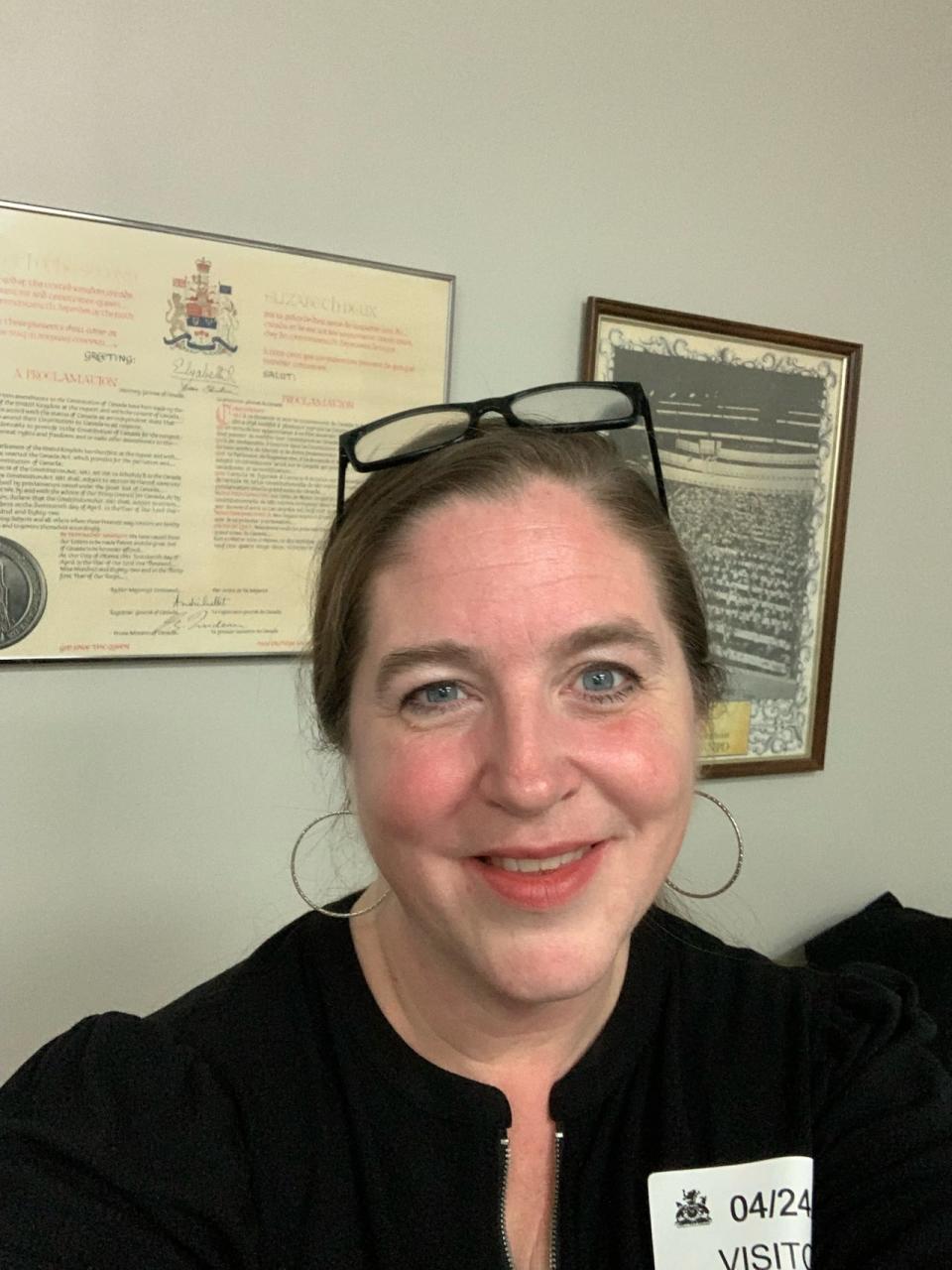OCDSB elementary review raising parent concerns

Ahead of a planned review of elementary school programs and services in the Ottawa-Carleton District School Board (OCDSB), some parents are raising concerns over potential changes.
The board is looking at its mix of English, French, special education and virtual offerings, saying the model is more than two decades old and means some students have to travel to different parts of the city for the education they want.
Some parents and caregivers of children with special education needs are worried about sweeping changes — or even elimination — of specialized classes.
"It's difficult to not be concerned that a decision hasn't already been made here by the language that's being used by the school board," said Kate Dudley-Logue, a mother of two children with autism and executive member of the Ontario Autism Coalition.
"Increasingly, school districts are understanding that specialized classes can also segregate students from their peers, limit student access to curriculum or growth opportunities, force students to be transported out of their communities, and reinforce stereotypes and stigma," reads an OCDSB document explaining the purpose of the review.
It continues to state these classes often "do not foster inclusive learning environments."
Special education classes 'a lifeline'
Dudley-Logue said it's frustrating the term "inclusion" being used to prompt a review of specialized education programs for about 2,000 kids.
"For so many kids, putting them in mainstream classes will likely guarantee more exclusion than inclusion," she said.
Her 10-year-old son is in a specialized class for students with autism and she said it has been "a lifeline for him."
There needs to be more provincial support and funding to school boards, Dudley-Logue said, and school boards like OCDSB need to "start using stronger language and stand up for our kids," especially those with special education needs.

Kate Dudley-Logue, an executive member of the Ontario Autism Coalition, visited Queen's Park this week to lobby for better support for students with special education needs. (Submitted by Kate Dudley-Logue)
No decisions made yet
OCDSB director of education Pino Buffone said the school board will rely on feedback it's gathering from parents and caregivers, those with lived experience and existing research.
"That might ultimately impact the kinds of specialized programs we offer. It may not, that's yet to be determined. That's what we're undergoing this review for," he said.

Pino Buffone, director of education for the OCDSB, says the elementary program review is being driven by equity. (Nicole Williams/CBC)
Buffone stressed there's been no decisions yet on changes.
He said the board's early French immersion program is an example of a program that has been working well and could be augmented and enhanced.
While staff shortages, transportation woes and the budget are on the board's radar, Buffone said they "aren't driving" the review.
Review welcomed for certain programs
For parent Geri Moss-Norbury, this elementary program review is important and should mean improvements for early French immersion and the gifted program.
She said one of her children is gifted and dyslexic and her family received "heavy pressure" to move him out of immersion because of his learning disability.
It's a common trend reflected in the board's own research, which outlines how "the majority of students with special needs are supported in the English program."
Moss-Norbury said she wants to see improved access to early French immersion for families who have not have historically chosen that option, and for children like her son "not to be pushed out of the program against their wishes."

Geri Moss-Norbury, who has one child in an OCDSB school, says she hopes the review can address some of her concerns with the gifted and early French immersion programs. (CBC)
The gifted program could also benefit from more equitable access, she said.
Still, Moss-Norbury is hopeful that a review won't result in eliminating or downsizing the already shrinking gifted program within the OCDSB.
The school board will be collecting community feedback until June to provide a preliminary report to trustees by the end of the calendar year.


